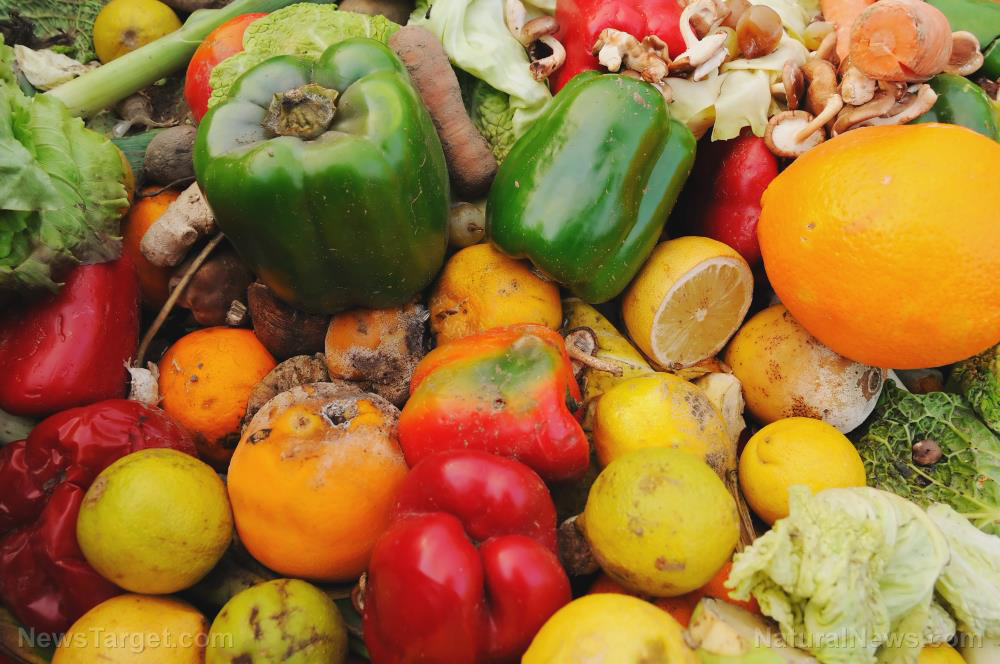Walking our talk: sustainability in action
10/27/2015 / By homesteadingnews

I don’t meet all that many people these days who still think that “things are fine” with the US economy – or that “recovery is right around the corner”. The light-bulbs are coming on for people and they are beginning to realize that the current state of affairs is, as David Wann says, the New Normal. The Emperor really has no clothes. We’ve consumed our way past the Peak and the descent has begun.
On the other hand, I don’t meet many people who do much more about this than merely talk! I hear a lot of “oh, ain’t it awful” sagas without much accompanying action. And, frankly, the only thing that’s really going to move us into a more secure future is action.
The time for talking is over. We need to take action while we still have some choices left.
We can decide to make the descent in a controlled way, beginning now, or to cling to
our current lifestyles and wait for the inevitable entropic free-fall. What we need to know to get by in a disintegrating industrial society is radically different from what we have needed to know to shop in malls, eat out, outsource our child-care, buy pre-packed food and work out in a gym.
Additionally, many of the requirements of an age of decline come with prolonged learning curves and a high price for failure. Starting right away to re-skill to navigate a de-industrializing society offers the best hope of getting through the difficult years ahead with some degree of dignity and grace.
Action is simple enough: figure out how you will be able to live after the next wave of crisis hits, and to the extent that you can, start living that way now:
· Figure out how you will get by if your job goes away or down-sizes, and you have to make do on much less money; downsize
· Get out of debt – all of it. Make paying off student loans, car loans, mortgages, and credit card
balances a #1 priority
· Re-skill. Learn to do all of the things that your Grandparents did as a matter of course:
· Learn to grind wheat-berries into flour and bake bread
· Learn to cook and bake from scratch
· Use your clothesline instead of a dryer
· Learn to can vegetables and fruits
· Begin sun-drying herbs for teas and tinctures
· Learn jelly-making
· Learn how to care for livestock
· Consolidate errands to reduce transportation needs
· Get to know your neighbors and begin to help one another. Form
support networks
· Develop barter and trade networks. Utilize the area Time Bank
· Spend less money. Stop buying stuff!
· Plant a garden and learn to care for it
· Start a compost bin and utilize your kitchen scraps and other waste
· Get fit so that you can bicycle or walk to local destinations.
· Get some laying hens
· Learn to do home repairs and have supplies and tools on hand
It’s not sufficient to read and talk about this stuff. Experience is the ultimate teacher. We learn from our mistakes and it is a whole lot smarter to make those mistakes when the stakes aren’t quite as high as they will be when the free-fall begins. If your garden fails now, you can still go to the market. That option might not be as readily available in post-industrialism. Ultimately, actions speak louder than words!
About the author:
Sherry L. Ackerman, Ph.D., is a socially engaged philosopher and cultural sustainability advocate. Her new book, The Good Life: How to Create a Sustainable and Fulfilling Lifestyle explores critical issues from this perspective. At the end of each chapter is a list of things that you can do to create a more sustainable, healthier lifestyle. For more information: http://www.sherryackerman.com
Tagged Under:



















